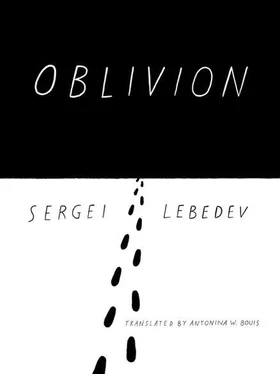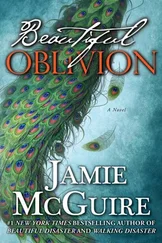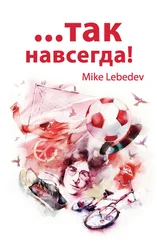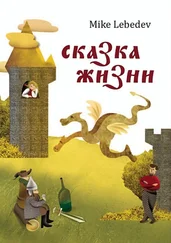I remembered the other time I had heard this silence, only once, but I remembered it for its singularity; as a child, one morning in the paleontological museum in the dinosaur skeleton hall.
The museum was empty that morning; I beat my parents to the biggest hall with the tyrannosaurus and other carnivorous monsters, and I was amazed: usually I was afraid of this room, afraid of the fangs and claws the size of my head, afraid of the skeletons that looked like enlarged drawings—they revealed the natural-rational meaning of creation, and I did not know what to think of life, of nature, which creates with equal thoroughness both the tender jay and the predatory pterodactyl.
It was quiet, completely quiet; and what I saw in the gaping monstrous jaws was not the anger and wrath that had frightened me before but instead the distortion from suffering and death; I saw that the room with the skeletons, the entire museum, the entire sunny autumn day—everything, we were all inside invisible jaws that had not yet closed, but in some final sense it had already happened.
And here on the street of the northern town I recognized that silence—the silence of a museum where the vanished creatures of a different era, fierce and horrible, were diminished by the fleshless face of death and became just as harmless as a squashed frog drying in the heat.
In the lobby I was met by the same ocher, rhomboid tile as in the Moscow building where Grandfather II lived; tile, walls, railing, elevator—it was all the same. I was amazed: how many other cities were there where I could walk into a building whose interior would inevitably elicit memories that I considered profoundly personal; even the wires leading to the doorbell bent the same way as in the former building, and I thought that there was really only one building, like the statue of Lenin, and that the differences in the biographies of its residents in various cities was averaged out by this uniformity; that the memorial plaques you sometimes see on its walls are just a mockery because for each apartment many more were led out of it than those who live there now. I imagined what would happen if all those decomposed residents were to return—the house could not fit them all, they would stand on the staircases, in the courtyard, strangers to one another, but each would recognize the sand-colored rhomboid tiles, the doorbells, the little plaques with the apartment numbers … The ones who survived would stay inside their rooms, afraid to come out, afraid to open the door a crack, because through that crack would squeeze flimsy shadows with black spots, ink splotches for faces, blotted out by the censors’ ink.
I started up the stairs; for a second I thought there was no one left in the building, that stale funereal air came through the keyholes, that behind the doors all the mirrors were covered. I recognized the beginning of my third dream that started me on this path; not that it had taken place here, though it could have.
The air on the landings still held—as it holds the smells from your neighbors’ kitchens—the febrile, sweat-soaked, throat-rattling dreams of old men; they slept, turning under their eiderdowns, gritting their teeth so as not to speak in their sleep, not choke, like a drunk on vomit, on the unexpected words of a sleepwalker, and their bodies trembled and sweated, and the sweat reeked of death.
Fourth floor, apartment sixteen; the bell jangled, it seemed, behind every door at once, the sound flew down long corridors, striking the glass panes of wardrobes and scattering as bouncing beads on the parquet. There was quiet behind the door; I rang again and waited a few minutes. The lock clicked inside the apartment.
In the dark of the chain-length crack, I saw a face. A woman stood behind the door, a meter and half from me, but I could not say whether it was a person or an image; then I realized that her face was partially paralyzed, only the eyebrows moved, expressing surprise; I couldn’t see her features, it turns out a face lives in motion, in the barely perceptible movements of the facial muscles, and when it is motionless, there is nothing to be said about it; my gaze was attracted by the nostrils—two black dots, two entrances into the inner darkness of the body.
I imagined that a lizard or snake could crawl out of those black apertures, like holes in a stone wall or a cliff; that they did not belong to the face, they were openings, dangerous, evil; if I could, I would have shut the old woman’s nostrils, filled them with flesh.
To get out of that darkened moment, half inhaled into those nostrils, I spoke; I greeted her and asked for Semyon Vikentyevich. The old woman went back down the corridor, she left so noiselessly, as if she spent a lifetime trying not disturb someone’s sleep, sensitive, troubled, imbued with neuralgic pains; she returned just as noiselessly and unlocked the door. She had three dozen keys—probably to all the rooms, cupboards, closets, desk—and they did not make a sound, as if each key had been wrapped in cloth. There was something bizarre in that key ring, in that passion for keys, for their grooves and teeth, in the desire to keep all the keys together; there was a hint here, a key to the woman herself; she made an inviting gesture—come in—and immediately shut the door behind me. I had not noticed but I immediately felt it: the door was locked.
Keys and doors, doors and keys; I understood who she was: a former warder, the wife of some big shot who got her a job in his department; now an aide for the man I was visiting.
The old woman gave me a gentle shove: go. I went down the dark long corridor; two skinny cats were cleaning themselves near their bowls, the walls were bare, the side doors were shut, and only at the end of the corridor weak daylight from the room illuminated moth-eaten bear and deer heads, cotton stuffing poking out, and moths twirled in the sunbeams like animated dust; I remembered the letters—bear fat, seal blubber—the head belonged to one of the bears whose flesh supported life in the body of Grandfather II.
The first thing I saw in the room was a stick, just like the one with which Grandfather II killed the black dog in my childhood, made of polar larch, honey-rose from the resin, twisted like sinews, lacquered, and caught in shiny brass bands; the stick leaned against an armchair, and the vertical line of bright light through a crack in the drapes gave it a long shadow, like a sundial.
“An eternal stick,” said the man sitting in shadow. “A larch like this grows two hundred years, you can’t chop it down with an ax. A good thing. We’ll rot but it won’t.”
I was looking at the stick; now I saw that it was not just similar to, it was the one, the stick that had broken the black dog’s back. The stick was repeated, the way, when you go down winding tower stairs, the view is repeated through the windows set one above the other; it was repeated, fixing a spiral of time.
But there was something else besides the larch stick that sent me back to the past. From the almost pre-memory state of memory, from the first five or six years of my life, from the regions which show you to what degree a person consists of blanks and gaps—from there, as if through gauze, something was beating, as if memories could have a heart.
The voice—I knew that voice—but I had never heard it before.
The old man started to speak again; I barely heard what he said because this time his words resembled the sounds vibrating in my memory; I thought I was losing consciousness, falling forward, but in fact it was the liberated memory laying its hand on my forehead.
That’s what had happened—a heavy hand on my forehead, hard, bony fingers, a half-awake state, and two people by my bed: Grandfather II and this old man seated in the armchair. They were speaking in a half whisper thinking I was asleep; two aging men by a five-year-old’s bed. I didn’t know whose hand was on my forehead, whose fingers were so cold—their hearts could barely pump blood to them; their figures rose above me, blurred by twilight, and my body under the blanket got goose bumps: an alarm clock always ticked in my dacha room, but it was silent then—probably it had run down and no one rewound it—and those lost seconds came out as goose bumps.
Читать дальше












